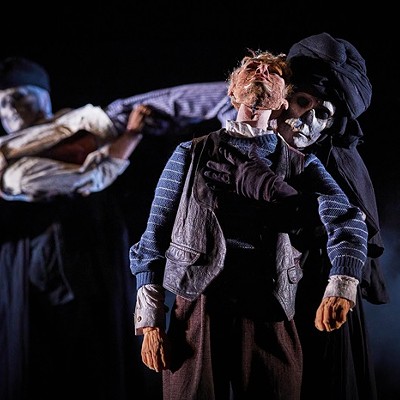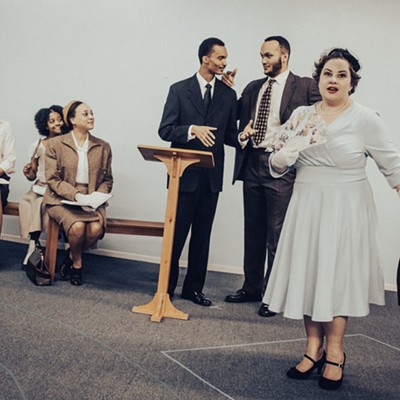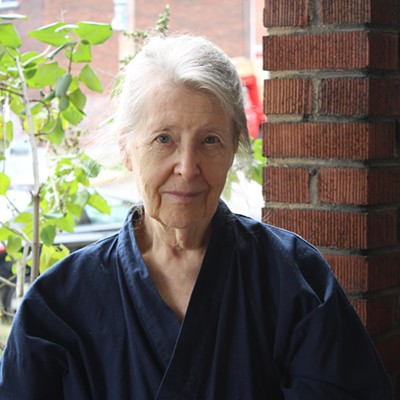Duquesne University students are getting good experience performing an enduring, memorable American play. It's William Inge's Picnic, winner of the 1953 Pulitzer Prize. Evoking our culture of 60 years ago, Inge says so many timeless things so well that seeing this anew could be a revelation. Portraying unsophisticated, small-town people, Inge evokes strong, fundamental emotions underpinned by well-written backgrounds.
The acting and Nancy Bach's direction get across the essentials convincingly. She keeps her cast within the bounds of reality, never overplaying, always sincere.
Not that Inge created primitive characters. Rather, he gave inner complexity to people who, on the surface, may seem simple, tellingly looking beneath the exteriors. Eighteen-year-old Madge is much admired for her prettiness, but wonders who she really is. She has been dating wealthy Alan Seymour, who, despite affluence, thinks himself unworthy of her, as if beauty were a virtue rather than an accident of nature. Homeless Hal Carter, Alan's former college roommate, drifts into town, still searching for his own substance, despite being admired for his looks and a seemingly confident devil-may-care attitude. His arrival overturns the neighborhood dynamics.
Added to the young people's story, Madge's mother Flo rents a room to local, no-longer-young schoolteacher Rosemary, who desperately wants affirmation that she is still desirable, hoping that local businessman Howard Bevans will marry her.
Surely the play dwells on how women at that time and place depended on men to fulfill their lives. Rosemary movingly shows the pain of such dependency, underscored by Flo telling Madge that youthful beauty is a short-lived resource. Moreover, Inge makes clear that Flo's marriage was no bed of roses. Equally well, he shows Madge and Hal's inner turmoil.
Maeve Montgomery successfully conveys Madge's unhappy confusion about herself, whereas Elizabeth Pegg convincingly portrays Rosemary's awareness of her own sad vulnerability. John Francis DeCesare ably makes Hal seem outwardly confident and yet emotionally needy, though he never seems like the stud nor the pushy braggart the script calls for.
Some of these student actors could use more training about how to make the best of their lines and not throw away essential words. Nonetheless, Inge's play comes across clearly, and this production affirms its excellence.














